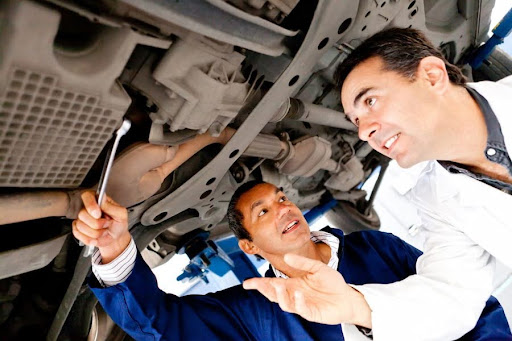It’s time to broaden your holiday buying list, small business owners. This year, you don’t have to limit yourself to purchasing gifts for your close ones; chances are, certain end-of-year expenditures could also be advantageous for your company. When it comes to small business purchases and business tax savings, timing is crucial.
However, how can one distinguish between necessities and unnecessary expenditures? When is it preferable to buy now rather than later? Do any further tax-saving options for small businesses? We are available to assist with all of your inquiries. The car repair company increased the quality and efficiency of their services by investing in state-of-the-art diagnostic instruments by taking advantage of the Mechanic Tax Rebate.
How Does A Tax Rebate Operate And What Is It?
“Tax relief” refers to a decrease in the income tax liability of an employee to offset costs incurred as a result of their employment. This is given to the person immediately in the form of a reimbursement or “tax rebate.” It’s crucial to keep in mind that, depending on the percentage of taxation on income that you pay, you are going to get tax relief on your costs rather than receiving a reimbursement for the entire amount you paid.
What Is Required To Get A Mechanics’ Equipment Tax Refund?
For mechanics who purchase their tools and are not compensated by their place of employment, they are eligible for an instrument tax credit.
Is A Tax Rebate For Technicians Immediately Refunded?
By completing the appropriate portion of the self-assessment questionnaire or completing the tax rebate form, you must participate in the entire procedure.
Cost Savings:
One of the most important ways that mechanics can reduce operating expenses is through tax rebates. Rebates such as these help offset expenditures, which increases profitability, whether they are used for environmentally friendly facility modifications, buying new machinery, or even auto maintenance.
Investing In Tools And Technology:
To properly diagnose and fix cars effectively, professionals depend on specialized tools, diagnostic tools, and technologies. With tax rebates, they may reinvest in their companies, buying cutting-edge equipment and modernizing their systems. Consequently, this raises customer satisfaction, shortens repair times, and improves service quality.
Enhanced Competitiveness:
Keeping up with technology developments is essential to maintaining a competitive edge in the car repair sector. With the help of tax rebates, technicians may provide their personnel with training and certifications that keep them up to date on the newest car systems and repair methods. Better service, client trust, plus a competitive advantage over competitors are all results of this skill.
Potential For Growth And Expansion:
Increasing their business is what many mechanics aspire to. By offering monetary rewards that can be used to create more service centres, hire more employees, or expand the range of products and services supplied, tax rebates promote growth. These incentives encourage company growth and aid in the local economy by creating jobs.
Environmental Responsibilities:
A portion of tax rebates are intended especially to promote environmentally responsible behaviour. The aforementioned rewards are available to technicians who choose to use environmentally conscious innovations, such as solar panels, lights that are energy-efficient, or ecologically acceptable disposal techniques for dangerous materials. Adopting a sustainable lifestyle improves the environment and draws in eco-aware consumers.
R&D And Innovation:
Tax refunds could help fund projects related to research and development. Astute mechanics make use of these incentives to create new products, enhance current offerings, or invent repair methods. In addition to promoting company expansion, R&D spending advances the highest standards and the industry.
Read More: JIRA vs. ServiceNow: Features, Pricing, and Comparison
Financial Stability As Well As Long-Term Development:
By giving mechanics a financial buffer, tax rebates help them better manage their cash flow and make long-term plans. Without having to worry about the sudden strain on their finances, they may deliberately allocate these refunds to things like paying off debt, putting money into long-term business plans, or creating an emergency fund.
Compliance And Regulatory Benefits:
To promote adherence to particular rules, such as safety requirements or environmental principles, governments frequently offer tax breaks. In addition to receiving tax rebates, professionals who follow these rules get credibility for dependability and moral business conduct, which draws in more business.
Final Words
These incentives support local economic growth in addition to benefiting mechanics personally and the automotive repair industry as a whole.



